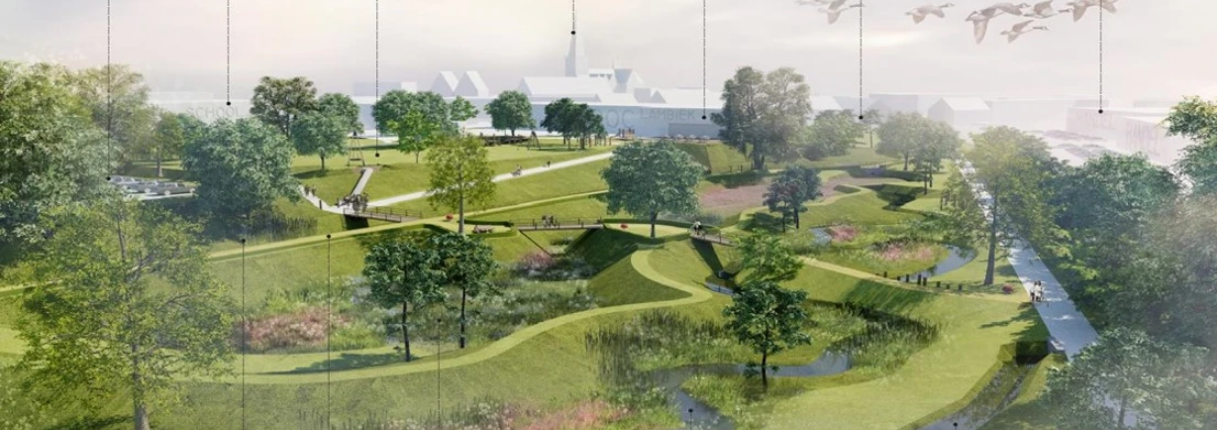The Molenbeek is a tributary of the River Zenne. The Molenbeek valley and its tributaries, the Zevenborrebeek and the Kwadebeek, form a valley system that extends over a distance of around 13 kilometres between Beersel and Sint-Genesius-Rode. The land development project is a wide-ranging one that includes a large number of measures to improve the Molenbeek valley with regard to the landscape, recreation, ecology, etc. As part of the Belini project, we are putting together a number of measures to improve the water system.
In the past, this area frequently had to contend with a number of major problems in terms of water management:
- The watercourses lacked natural character, which had a negative impact in terms of wetland biodiversity.
- The area’s main bodies of water flowed underground through artificial pipework infrastructure.
- Barriers impeded the migration of fish (which had a negative impact on biodiversity).
- Flooding problems due to lack of natural water retention areas.
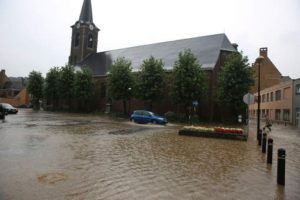
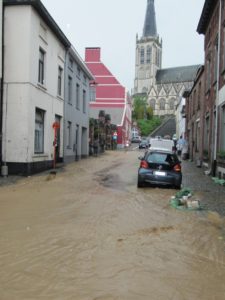
The general objective of this action is to create new areas for natural water retention (creating space for natural flooding in areas where this has no impact on the urban environment). Converting underground watercourses (which run underground through pipeline infrastructure) into natural creeks and streams, will make it possible to restore the natural quality of those watercourses. The barriers impeding fish migration that exist within these watercourses will be solved by creating specific infrastructure that will enable fish to migrate past the current barriers.
Alsembergse Beemd
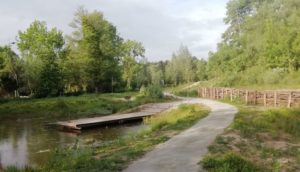 In late January 2019, work got under way to create a new park in the Alsembergse Beemd (Beersel). The work took around 18 months to complete. This green area now includes a variety of pathways and play equipment and can be used by both young and old for recreation and for meeting up with other people. The scheme also takes water retention into account. The new canal between the Molenbeek and the Leuzebeek will once more give the fish population every possible chance, as it will enable them to avoid the waterfall at the Ensdelle mill. The newly excavated pools also provide a habitat for amphibians and dragonflies.
In late January 2019, work got under way to create a new park in the Alsembergse Beemd (Beersel). The work took around 18 months to complete. This green area now includes a variety of pathways and play equipment and can be used by both young and old for recreation and for meeting up with other people. The scheme also takes water retention into account. The new canal between the Molenbeek and the Leuzebeek will once more give the fish population every possible chance, as it will enable them to avoid the waterfall at the Ensdelle mill. The newly excavated pools also provide a habitat for amphibians and dragonflies.
The Alsembergse Beemd sub-project forms part of the ‘Land van Teirlinck’ land development project. This encompasses the restructuring of the former football field and the former Volvo car park, the construction of a safe cycle route, recreational opportunities and the incorporation of water retention facilities in order to reduce the risk of flooding.
This action is also being supported by the municipality of Beersel and the province of Flemish Brabant.
Vismigratieknelpunten
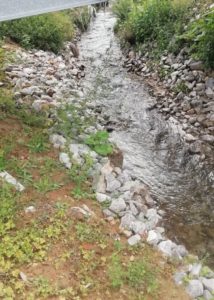 Due to the many old watermills located along the Molenbeek and Zevenborrebeek, there are a lot of fish migration barriers. These barriers will soon be addressed.
Due to the many old watermills located along the Molenbeek and Zevenborrebeek, there are a lot of fish migration barriers. These barriers will soon be addressed.
The intention is to solve all fish migration barriers on the Molenbeek in Beersel.
Activities will focus upon solving two fish migration barriers, thereby making it possible to connect the Zevenborrebeek with the Kapittelbeek to encourage fish migration. The Kapittelbeek is an ecologically important river that is home to vulnerable fish populations. The secondary focus is to connect the Molenbeek with the River Zenne. Two other fish migration barriers at former mills (the Steenput mill and Herissem mill) will also be solved. The study to identify how to solve these four fish migration barriers got under way in June 2019. In 2020, the technical plans will be developed.




